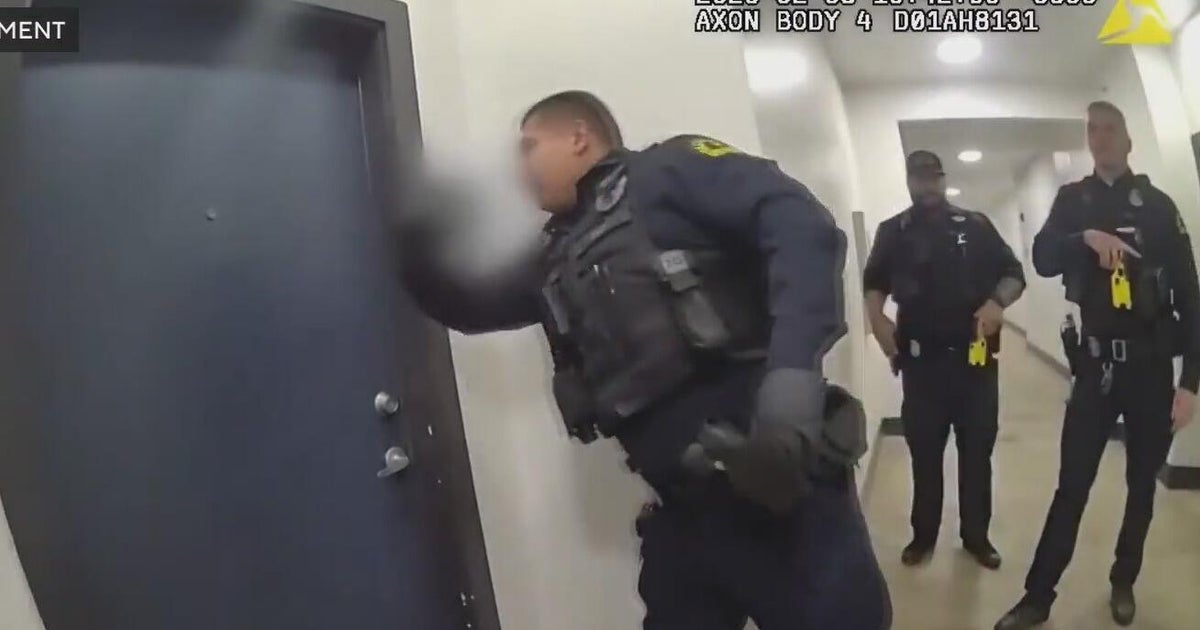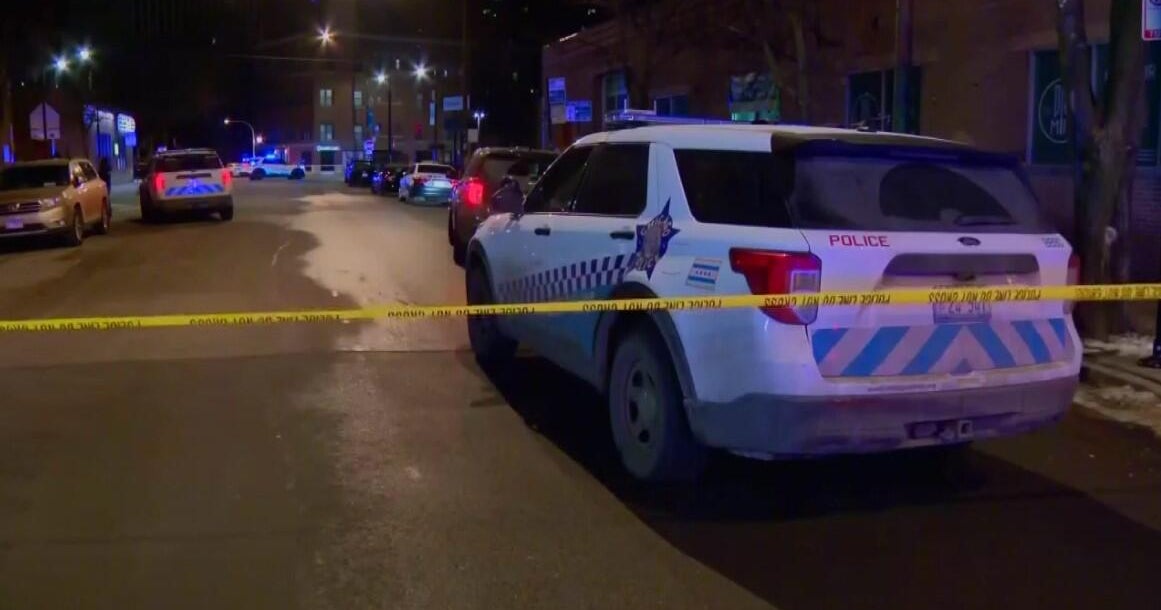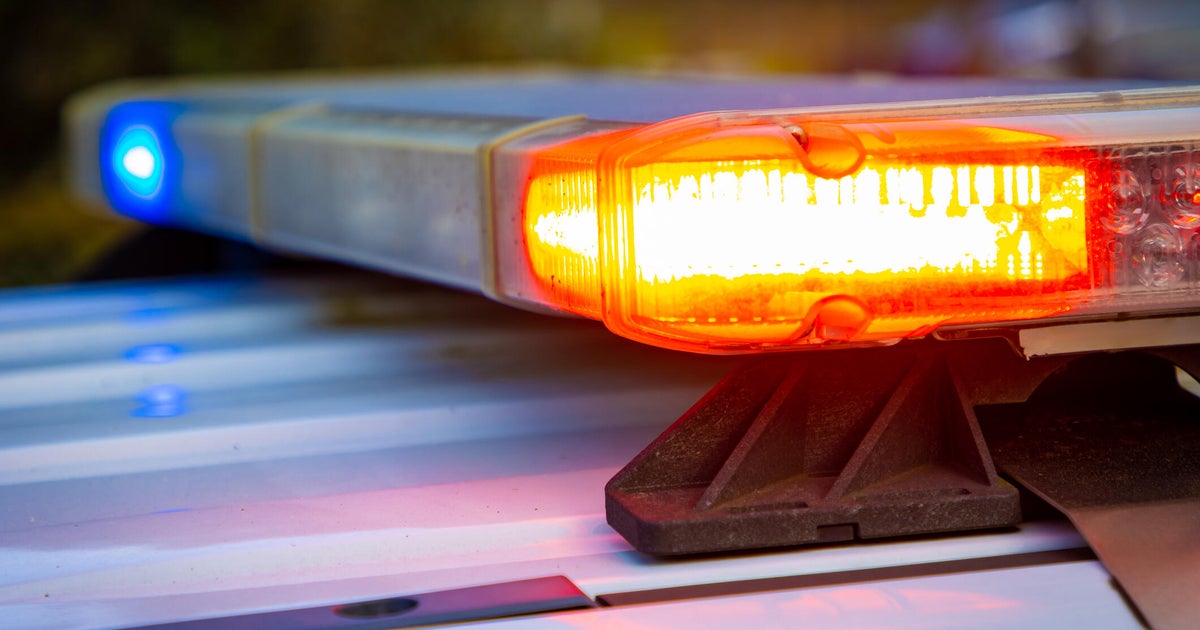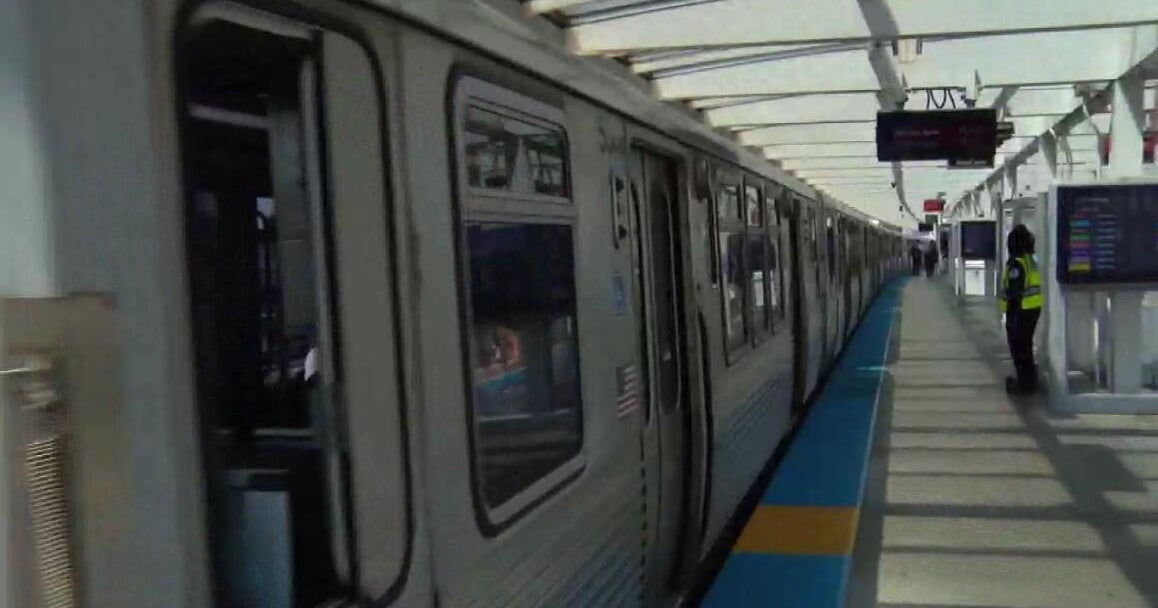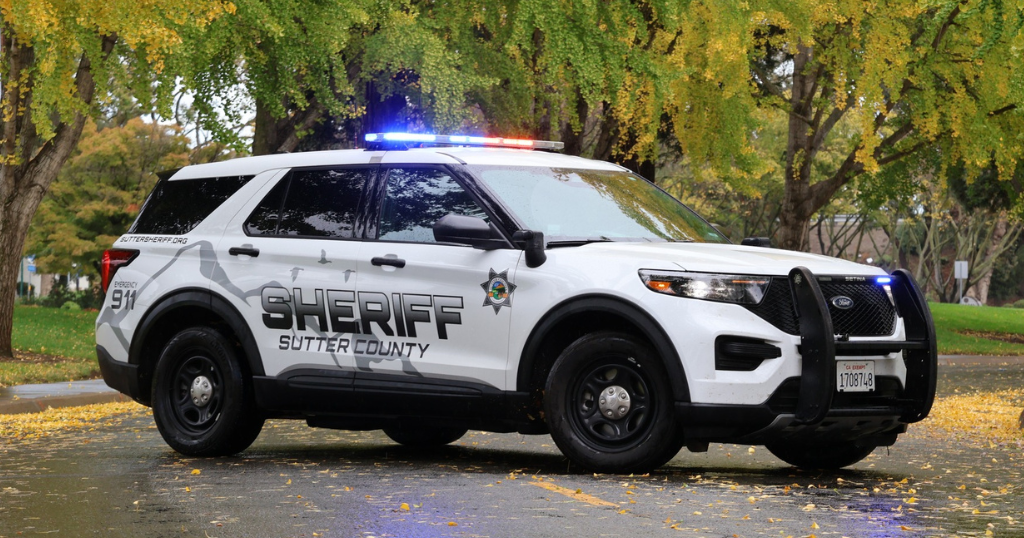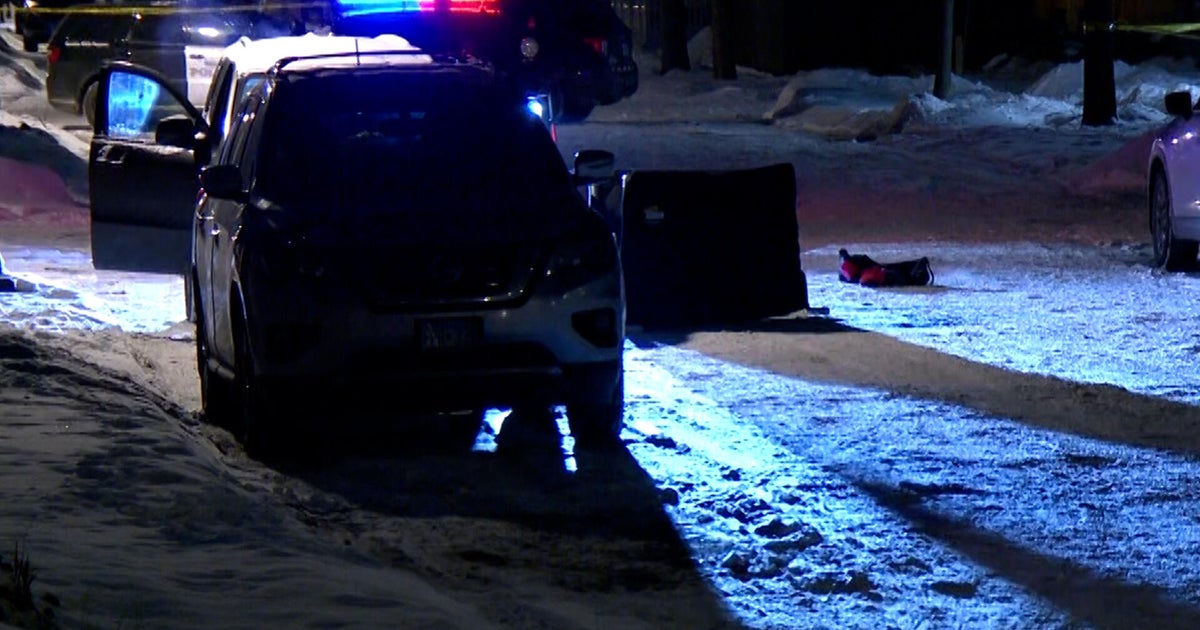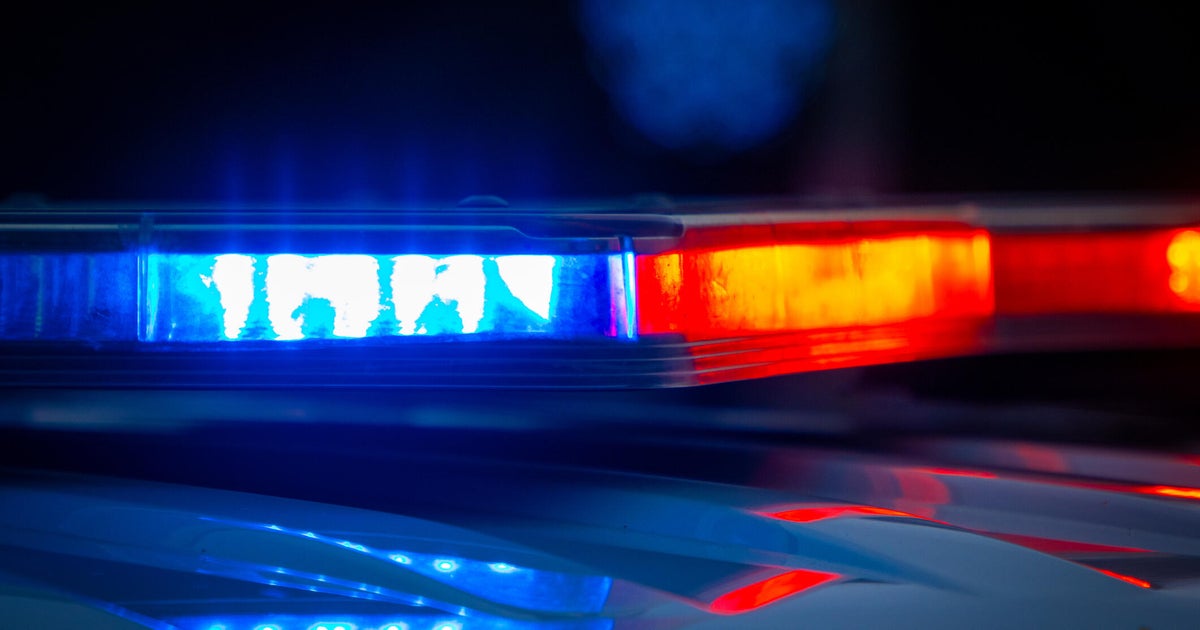Israel Deploys Military In Cities To Stop Attacks; NY Lawmaker To Visit
JERUSALEM (CBSNewYork/AP) -- The Israeli military began deploying hundreds of troops in Israeli cities Wednesday to assist police forces in countering a wave of deadly Palestinian shooting and stabbing attacks that have created panic across the country.
As CBS2 Political Reporter Marcia Kramer reported, some New Yorkers have begun traveling to Israel to show support.
Israeli police on Tuesday fired tear gas as a group of stone-throwing Palestinians in Bethlehem, as the rash of knife and gun attacks continued unabated. In one of the latest incidents, a 70-year-old woman was stabbed outside the main Jerusalem bus station.
The military's deployment of six companies marks the first implementation of measures by Israel's security Cabinet to counter the attacks that have intensified dramatically in recent days. The rash of attacks began following hotly-denied rumors that Israel wanted to take over some of the most sensitive holy sites in Jerusalem, which are sacred to Jews and Muslims alike.
There have been 15 attacks since the start of the Jewish new year which have left eight Israelis dead. Tuesday marked the bloodiest day yet, with four attacks in less than 24 hours.
Surveillance video showed one Palestinian driving his car into a crowded bus stop, and then hacking at the wounded with a cleaver. Israeli police have now been given more leeway to shoot suspected attackers, but critics worry it will incite more violence.
"The Israeli security forces have my full backing to take decisive action to save lives and to protect themselves," said Israeli Prime Minister Benjamin Netanyahu.
The Cabinet met late into the night and announced steps early Wednesday that included allowing police to seal off points of friction or incitement.
Many of the recent attackers have come from Arab areas of Jerusalem, prompting calls to seal off those neighborhoods to contain potential attackers.
The Cabinet also decided to strip residency rights and demolish homes of some attackers and draft hundreds more security guards to secure public transport.
Israeli police said 300 soldiers had already been incorporated into their deployment on the streets of east Jerusalem, where many of the assailants are from.
Also Wednesday, Israel's internal security minister said the bodies of dead Palestinian attackers should not be returned to their families for burial.
Gilad Erdan said the funeral processions of Palestinians who killed Israelis often turn into "an exhibition of support for terror and incitement to murder." He said Israel should not allow them to "enjoy respect and ceremonies" after their deaths.
The funerals are a frequent flashpoint for clashes and often include calls for revenge. Erdan suggested the attackers be buried without fanfare in distant cemeteries where previous Palestinian killers have been buried.
The comments come after a particularly bloody day in which a pair of Palestinian stabbing and shooting attacks in Jerusalem killed three Israelis and another two attacks took place in the normally quiet Israeli city of Raanana. Three Palestinians, including two attackers, were also killed.
Assemblyman Dov Hikind (D-Brooklyn) said he is traveling to Israel with a group of New Yorkers for a four-day solidarity trip.
"Terror is terror. This is terrorism of the worst kind," Hikind said, adding that his trip is intended to show that the majority of Americans stand with Israel. "People wake up in the morning, take a knife and say 'I'm going to find a Jew. A man, a woman, a child, it doesn't matter, and I'm going to stick that knife into that person,' that is just beyond comprehension."
Former Mid-East Envoy Dennis Ross told CBS2's Kramer he is worried about the violence getting worse.
"We're certainly seeing something that looks like it's taken on a life of its own," Ross said. "What worries me about the current violence is not just its character, but the fact that it's not organized. Those carrying it out are not members of a group."
The Israeli government has thus far been unable to stop the violence, carried out mostly by young Palestinians unaffiliated with known militant groups and apparently acting on their own. Israel says the violence has been fueled by what it says is rampant incitement against Jews and Israelis on social media spread by Islamic groups and the Palestinian leadership.
In a briefing to foreign journalists, Israeli Cabinet minister Yuval Steinitz said the current conflict had less to do with political differences and more with anti-Semitic incitement to create a religious war.
He showed Palestinian videos and animations that glorified the stabbings of Jews in the Old City of Jerusalem and the killing of a Jewish settler couple in the West Bank in front of their children.
He also quoted Palestinian President Mahmoud Abbas' recent statement where he blessed "every drop of blood spilled for Allah" and that Jews desecrated a Jerusalem holy site with their "filthy feet."
"This is not new. It is just a new wave of terrorism and violence and this time it's totally clear that the main approach here is a religious approach. Defending Islam from the enemy of the mosque, the enemy of Islam -- against the Jews," Steinitz said. "It's all about horrible, anti-Jewish, racist incitement."
The attacks have caused panic in Israel and raised fears that the region is on the cusp of a new round of heavy violence.
The wave of violence also comes at a time when prospects for negotiating an end to the Israeli-Palestinian conflict seem nil. It appears to have been fueled by a deep sense of frustration among Palestinians, who believe that all paths to gaining independence and ending nearly half a century of Israeli occupation have been blocked.
The violence erupted a month ago over the Jewish New Year, fueled by rumors that Israel was plotting to take over Jerusalem's most sensitive holy site, sacred to both Muslims and Jews. Israel has adamantly denied the allegations and accused Palestinian leaders of inciting the violence and spreading lies.
Palestinians repeatedly barricaded themselves inside the Al-Aqsa Mosque compound in Jerusalem's Old City, hurling stones and firebombs at police.
Violence was initially confined to east Jerusalem and the West Bank -- territories Israel captured from Jordan in the 1967 war and claimed by the Palestinians for a future state -- but later spread to Israeli cities. Violent protests have also broken out along with Israel-Gaza border. Clashes continued Wednesday between Israeli troops and Palestinian protesters in the West Bank city of Bethlehem.
Eight Israelis have died in a string of stabbings, shootings and the stoning of a car, while 29 Palestinians -- including 12 identified by Israel as attackers -- have been killed.
In Tuesday's violence, a pair of Palestinian men boarded a bus and began shooting and stabbing passengers, while another assailant rammed a car into a bus stop, then got out of his vehicle and began hacking bystanders with a long knife.
The near-simultaneous attacks, along with two stabbings in the central Israeli city of Raanana, marked the most serious outbreak of violence since the current round of tensions erupted.
The Obama administration issued a strong condemnation of Palestinian incitement and assaults against Israelis. U.S. Secretary of State John Kerry said he planned to visit the region soon to try and encourage calm.
(TM and © Copyright 2015 CBS Radio Inc. and its relevant subsidiaries. CBS RADIO and EYE Logo TM and Copyright 2015 CBS Broadcasting Inc. Used under license. All Rights Reserved. This material may not be published, broadcast, rewritten, or redistributed. The Associated Press contributed to this report.)
